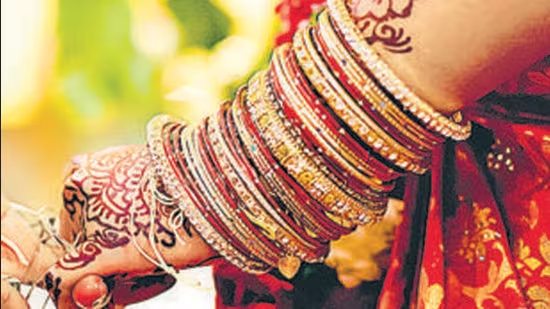An examination of 40,000 marriages in rural India between 1960 and 2008 by a World Bank report finds that dowry’s taint has spread amongst Sikhs and Christians who now have higher average dowries than Hindus and Muslims

Representational image.
Three deaths, 10 days, 60 years of an anti-dowry law. Cold numbers that tell you not just about the pervasive power of dowry, but its spread to states where it was relatively unknown.
The deaths over 10 days of Vismaya (22), Archana (24) and Suchithra (19) following alleged violence over dowry in Kerala, the state with the best gender indices — literacy, maternal mortality, sex ratio — has revived an old conversation on an ancient malaise.
There is one dowry death somewhere in India every hour, records the National Crime Records Bureau. An examination of 40,000 marriages in rural India between 1960 and 2008 by a World Bank report finds that dowry’s taint has spread amongst Sikhs and Christians who now have higher average dowries than Hindus and Muslims.
Also Read | Gender pay gap leads to fewer female candidates on the ballot: Study
The traditional justification for dowry is that it is a “compensation” to daughters who otherwise would have no share in their fathers’ assets. This is rubbish because a daughter has no control over her dowry or even a say on how it is spent or distributed. For instance, a family might use the daughter-in-law’s dowry to boost the daughter’s dowry and improve her marriage prospects.
Furthermore, Hindu daughters now have equal inheritance rights as sons to ancestral property. It’s another matter that the law remains largely on paper and, anecdotally, one hears of daughters signing away their rights to maintain “good relations” with their brothers. But in theory, if the law gives daughters the right to inherit, what is the need for dowry?
At the core of the issue lies not inheritance or even dowry but the status of women as invisible beings who live in the shadows of families, lurking unseen in kitchens, stripped of autonomy and agency. Our value lies in our ability to work as unpaid slave labour, produce offspring (male, obviously, since the family name cannot possibly be passed on to women) and protect the patriarchy.
We have to ask if we love our daughters enough. Or is this a love that is conditional on their obedience? Even today, 95% of marriages are arranged by parents. If daughters choose to exercise agency, or God forbid, break caste and religious endogamy,then all hell can break loose. This is not an exaggeration. Look at “honour killings”. Look at “love jihad” laws that presume daughters, even adult daughters, are easily led astray and incapable of making decisions for themselves.
And, if a daughter chooses not to marry at all, we are aghast. After all, she must go to her “own” home and fulfil her destiny as a dutiful wife and mother.
You cannot fight dowry in a silo. You need awareness campaigns. You need legislative action and activism by community leaders to enable the inheritance of all women. You need to excise everyday sexism and misogyny, starting from school books. And you need to allow daughters to marry whoever they choose — or no one at all.
Namita Bhandare writes on gender
The views expressed are personal